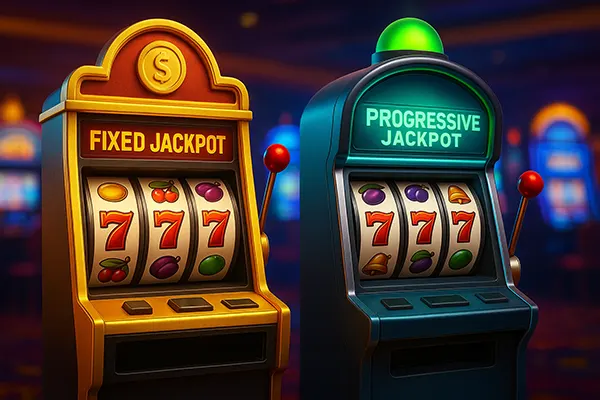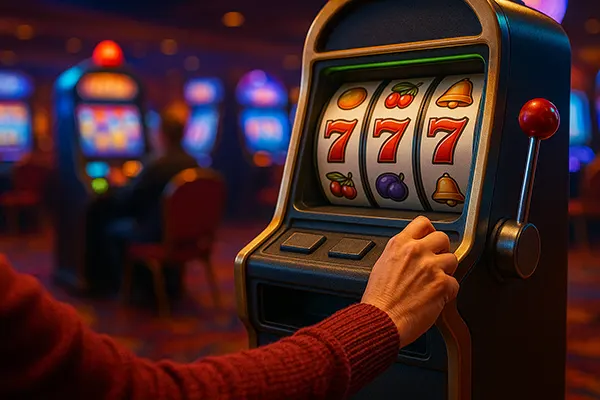Fixed Jackpot Games vs Progressive Jackpots: Key Differences

Jackpot games remain among the most sought-after options in online casinos, especially as they provide players with a chance to win substantial prizes. However, not all jackpots are created equal. While progressive jackpots often dominate headlines due to their size, fixed jackpots continue to attract players who value stability, transparency, and consistent payouts. Understanding the differences between these two types is crucial for making informed choices.
How Fixed Jackpots Work
A fixed jackpot is a prize pool with a predetermined amount that does not change regardless of how many people play the game. This means the maximum prize is always the same, ensuring complete clarity for players. Unlike progressive jackpots, which accumulate over time, fixed jackpots are not linked to other machines or games. Their value is defined in advance and remains stable.
Many slots and table games with fixed jackpots clearly display the top prize on the screen. Players know exactly what they are competing for, and this transparency is one of the main attractions. Fixed jackpots can vary in size depending on the provider, ranging from smaller sums to significant six-figure rewards.
Another characteristic of fixed jackpots is their frequent payout cycle. Since they are not built on a growing pool of bets, developers often design them to trigger more often than progressive prizes. This makes them appealing to players who prefer regular chances of winning a substantial reward without waiting for years.
Benefits of Choosing Fixed Jackpots
One of the greatest advantages of fixed jackpots is predictability. Players know what they stand to win and can plan their gameplay accordingly. This is particularly valuable for individuals who seek entertainment rather than chasing record-breaking payouts.
Another benefit lies in accessibility. Unlike many progressive jackpots that require higher stakes to qualify, fixed jackpots are often available to a wider range of players, including those who prefer lower bets. This makes them more inclusive and user-friendly.
Finally, fixed jackpots reduce the pressure of timing. Since the prize does not depend on the total volume of play across a network, players can enjoy games without the fear of missing out on a rapidly growing jackpot. This feature ensures a balanced and enjoyable gaming experience.
Progressive Jackpots Explained
Progressive jackpots, in contrast, work by pooling a portion of every bet placed into a shared prize fund. This means the jackpot grows over time until it is eventually won. Some of the most famous online jackpots, such as Mega Moolah and Divine Fortune, have reached millions in payouts thanks to this system.
Unlike fixed jackpots, progressives are often networked across multiple casinos, dramatically increasing the size of potential winnings. The growing total is usually displayed prominently, adding excitement and encouraging more participation. This system relies on scale, and the more people play, the faster the jackpot rises.
However, progressive jackpots are typically harder to win. The odds are slimmer due to the massive potential reward. In addition, some progressives require maximum bets to qualify, which can limit accessibility for players with smaller budgets.
Why Players Choose Progressive Jackpots
The primary reason players gravitate towards progressive jackpots is the potential for life-changing sums. Stories of winners turning small bets into millions create an irresistible allure. This appeal lies in the rare chance to win what can sometimes be compared to a lottery prize.
Another reason is the sense of community. Because progressives are often shared across multiple sites, players feel connected to a larger pool of participants. Watching the jackpot grow daily adds to the anticipation and thrill.
Progressive jackpots also offer an element of spectacle. The huge sums displayed act as a magnet for those who enjoy chasing extraordinary rewards, even with long odds. For many, the dream outweighs the risk of unlikely success.

Key Differences Between Fixed and Progressive Jackpots
The most obvious distinction lies in the prize structure. Fixed jackpots provide consistency and transparency, whereas progressive jackpots deliver unpredictability and potentially massive payouts. Each type caters to different player preferences, whether one values stability or dreams of a transformative win.
Another difference is accessibility. Fixed jackpots are generally more inclusive, as they often do not require maximum bets to participate. Progressives, by contrast, may set higher entry requirements, making them less appealing to casual players.
Lastly, the frequency of wins differs significantly. Fixed jackpots tend to hit more often, giving players a better chance of success in shorter periods. Progressive jackpots, on the other hand, may take months or years to pay out, but when they do, the reward is unmatched in size.
Choosing the Right Jackpot for You
Deciding between fixed and progressive jackpots depends largely on personal goals. If you are seeking reliable prizes and a more frequent winning potential, fixed jackpots are a suitable choice. They combine clarity with accessibility, creating a balanced gaming option.
If your aim is to chase extraordinary rewards, progressives provide the ultimate thrill. They may come with higher risks and lower chances of success, but the potential payout can be truly life-changing.
Ultimately, both fixed and progressive jackpots have a place in the gambling industry. Understanding how they differ allows players to align their choices with their preferences, budgets, and expectations, ensuring a more satisfying gaming experience overall.



